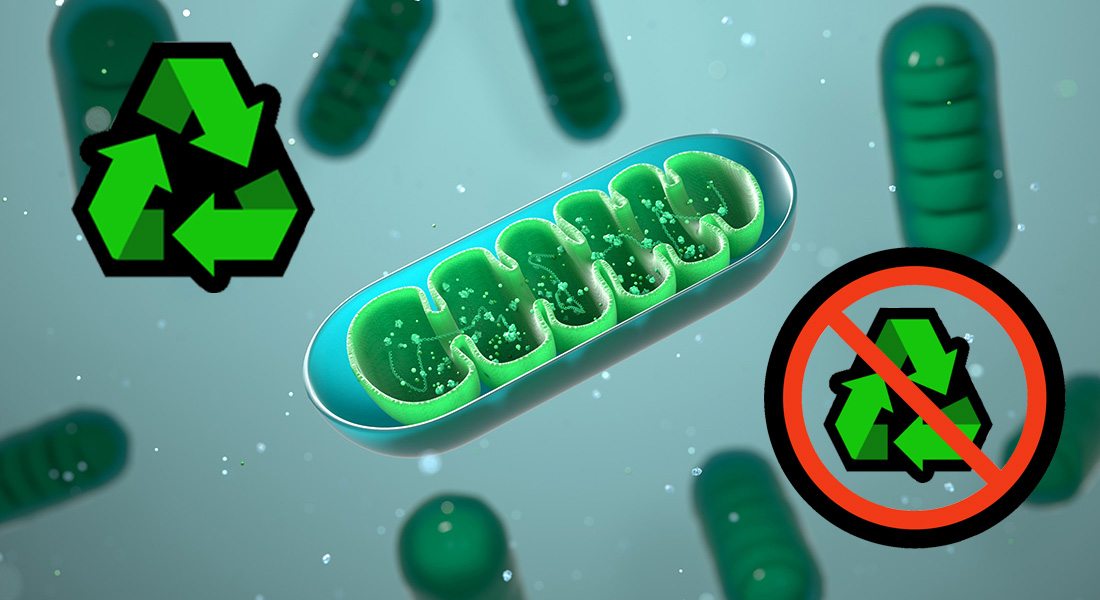Energy Sensor AMPK Fine-Tunes Mitochondrial Recycling
An international research collaboration with the Sakamoto Group has discovered molecular pathways that quality control and optimize mitochondrial function. The research, published in the scientific journal Molecular Cell, could open up new avenues for treating a wide range of diseases by restoring the balance of these crucial energy producers within our cells.

Mitochondria are the energy-generating powerhouses in our cells and play a key role in our cardiometabolic health. When faulty mitochondria accumulate in cells, it can lead to many diseases, including cancer, neurodegenerative disorders and cardiometabolic diseases such as type 2 diabetes. Thankfully, cells have an effective recycling process called mitophagy that takes faulty mitochondria out of service.
It is not fully understood how cells quality control mitochondria to make sure only faulty mitochondria are recycled. Now, scientists from the University of Copenhagen and the University of Dundee have discovered how this process is regulated by AMP-activated protein kinase (AMPK) – an enzyme that plays an important role in helping our body sense and regulate its energy needs.
The discovery, published in Molecular Cell, may support new therapies that could help rebalance mitochondria that have been disrupted by disease. For example, in neurodegenerative diseases where faulty mitochondria accumulate, activating AMPK in affected tissues could potentially enhance the removal of damaged mitochondria and improve cellular health.
“This is a great example of the power of collaboration – three groups have come together and combined their expertise to reveal the mechanism of how AMPK balances mitochondrial turnover. This important discovery would have been much harder to solve without this,” says Professor Ian Ganley from the MRC Protein Phosphorylation and Ubiquitylation Unit at the University of Dundee.
AMPK, the mitochondrial quality controller
Cells have different pathways for recycling healthy and dysfunctional mitochondria, and scientists found that AMPK plays an essential role in both. Maintaining mitochondria requires energy and cellular building blocks, so sometimes healthy mitochondria are recycled if the resources are needed elsewhere. However, this form of mitochondrial recycling, called NIX/BNIP3-Dependent Mitophagy, needs to be put on hold when energy demands are high.
AMPK helps to limit NIX/BNIP3-Dependent Mitophagy by adding phosphate groups to the protein ULK1. This allows another protein, 14-3-3, to bind to it. ULK1 is needed to form the structures that engulf and destroy mitochondria. But in this state, it cannot be recruited to the task, preventing mitophagy from taking place.
Cells also have a mechanism for recycling dysfunctional mitochondria called PINK1/Parkin-Dependent Mitophagy. The protein PINK1 accumulates on the outer membrane of damaged mitochondria, which attracts Parkin, another protein, to the damaged mitochondrion. AMPK then adds phosphate groups on Parkin, which increases Parkin's activity and marks the mitochondrion for recycling.
A collaboration of three labs with different expertise
These discoveries result from a unique collaboration between three different research groups. At the University of Dundee, the Ganley Lab possess expertise in mitophagy, while the MacKintosh Lab works on the phosphoprotein-binding 14-3-3 proteins.
“This is a great example of the power of collaboration – three groups have come together and combined their expertise to reveal the mechanism of how AMPK balances mitochondrial turnover. This important discovery would have been much harder to solve without combining their differing perspectives,” says Professor Carol MacKintosh from the University of Dundee.
These two labs teamed up with the Sakamoto Lab at the Novo Nordisk Foundation Center for Basic Metabolic Research at the University of Copenhagen, who focus on AMP-activated protein kinase (AMPK), a master regulator of energy metabolism.
“This fruitful collaboration exemplifies the power of collaboration in synergizing efforts from scientists with unique expertise in approaches, techniques, and tools to solve complex scientific problems. The work provides new insights into the role for AMPK in coordinating energy balance through quality controlling mitochondria,” says Professor Kei Sakamoto.
Read the full article in Molecular Cell: Opposing roles for AMPK in regulating distinct mitophagy pathways
Altmetrics
